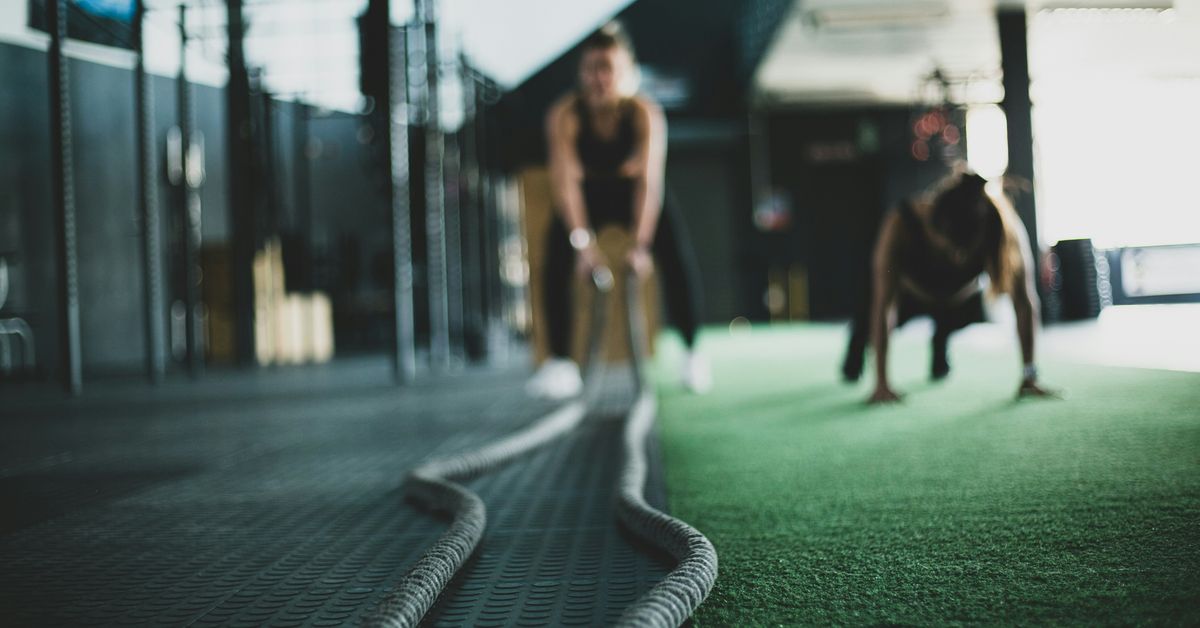Harnessing the Power of Mental Fitness: How Athletes Achieve Peak Performance
In the high-stakes world of sports, where milliseconds can make the difference between gold and silver, the focus often lies on physical training, nutrition, and skill development. However, an equally critical component often flies under the radar—mental fitness. It’s fascinating, isn’t it? While many fans are captivated by the spectacle of a last-minute goal or a record-breaking sprint, the truth is that behind those moments of glory lies a robust mental framework that athletes cultivate diligently. How do they do it? Let’s dig deeper.
The Foundation of Mental Fitness
Mental fitness, at its core, refers to the mental and emotional resilience that allows athletes to perform under pressure, overcome setbacks, and maintain a positive mindset. The concept of mental fitness isn’t new; it’s been around for decades, yet its significance has gained momentum in recent times. Studies suggest that nearly 90% of sports performance is mental, which is a staggering statistic when you think about it.
I remember attending a sports psychology seminar years ago, where the speaker—a former Olympic coach—remarked that “the mind is the athlete’s most powerful tool.” He wasn’t just spouting platitudes; he was highlighting a truth that countless athletes have come to understand: mental preparation is just as vital as physical training. So, what does this mental training entail?
Visualization Techniques
One of the most effective tools in the mental fitness arsenal is visualization. Athletes use this technique to mentally rehearse their performances before they even step onto the field. It’s akin to a movie director casting their imagination—each detail meticulously crafted, from the sound of the crowd to the feel of the ball in their hands.
Take, for example, Serena Williams, who is notorious for her visualization rituals before matches. She doesn’t just see herself winning; she envisions every shot, every swing, and even the emotions she’ll experience. This isn’t mere daydreaming; it’s a well-researched technique that has been shown to improve performance. A significant number of studies support the idea that mental imagery can enhance actual performance by priming the brain in ways that physical practice alone cannot.
Mindfulness and Meditation
Another powerful practice that athletes are adopting is mindfulness meditation. In a world filled with distractions—social media, fan expectations, personal pressures—athletes often find themselves overwhelmed. Mindfulness helps them center their thoughts, reduce anxiety, and enhance focus. It’s about being present in the moment, which, let’s face it, can be challenging when you’re in the midst of a nail-biting competition.
Consider the story of NBA star Stephen Curry. Known for his incredible shooting ability, Curry credits much of his success to mindfulness practices. He takes time to meditate before games, allowing him to clear his mind and sharpen his focus. It’s like resetting a computer—sometimes you just need a moment of stillness to allow everything else to fall into place.
Building Resilience Through Failure
Resilience is another cornerstone of mental fitness. Every athlete, no matter how successful, has faced failure. The difference lies in how they respond to setbacks. Resilient athletes view failures not as indicators of their capabilities but as learning opportunities. They analyze what went wrong, adapt their strategies, and come back stronger.
Michael Jordan, often hailed as the greatest basketball player of all time, is a prime example of this mindset. He famously said, “I’ve missed more than 9,000 shots in my career. I’ve lost almost 300 games. Twenty-six times, I’ve been trusted to take the game-winning shot and missed.” Jordan’s ability to embrace failure and utilize it as a stepping stone to success exemplifies the mental toughness that defines elite performers.
The Role of Sports Psychologists
To navigate this complex mental landscape, many athletes enlist the help of sports psychologists. These professionals specialize in enhancing performance through mental strategies and coping mechanisms. They work with athletes to develop tailored mental training programs that address specific challenges, whether it’s performance anxiety, focus issues, or motivation problems.
Take the case of Lindsey Vonn, the Olympic gold medalist in skiing. After numerous injuries that sidelined her career, Vonn turned to a sports psychologist to help her regain her confidence. Through tailored mental exercises, she was able to conquer her fears, demonstrating how crucial the support of a mental health professional can be for athletes, especially during recovery phases.
Team Dynamics and Leadership
The mental fitness of an athlete doesn’t exist in a vacuum; it’s also influenced by team dynamics and leadership. A supportive environment can enhance mental resilience, while a toxic one can do the opposite. Athletes thrive in environments where open communication and trust are prioritized. This is where leadership comes into play. Strong leaders on a team—be it a coach or a senior player—can foster mental fitness by encouraging a growth mindset and promoting a culture of support.
Consider the New Zealand rugby team, the All Blacks. Their success is often attributed to their focus on mental fitness as a collective. They incorporate Maori traditions, such as the concept of “whanau” (family), into their training, emphasizing unity and mental strength. This approach not only builds individual resilience but also creates a cohesive team that can withstand the pressures of competition.
Nutrition: The Brain-Body Connection
It’s easy to forget that what we put into our bodies can significantly affect our mental clarity and focus. Nutrition plays a pivotal role in mental fitness. Foods rich in omega-3 fatty acids, antioxidants, and vitamins can enhance cognitive function and mood. Athletes are increasingly aware that a well-balanced diet fuels both their body and mind.
For instance, elite marathoners often incorporate foods like salmon, blueberries, and leafy greens into their diets to support brain health. It’s not just about running faster; it’s about staying mentally sharp throughout the race. You wouldn’t believe how many athletes I’ve spoken to who swear by their “brain food” snacks during competitions—sometimes it’s bizarre, like avocado on toast, but hey, whatever works, right?
The Power of Routine
Routine is another critical aspect that can enhance mental fitness. Establishing a pre-performance routine helps athletes get into the right mindset before competition. It’s a ritual that calms nerves and focuses the mind. Think of it as a secret weapon that athletes wield to channel their energy effectively.
Some may engage in specific warm-up drills, while others might listen to a curated playlist or perform a series of stretches. Tom Brady, the legendary NFL quarterback, is known for his meticulous pre-game routine, which he credits for helping him maintain peak performance levels even as he ages. It’s almost like watching a magician prepare their tricks—there’s an art to it, and everything has its place.
Community and Support Systems
Lastly, the role of community and support systems cannot be overstated. Family, friends, coaches, and teammates all contribute to an athlete’s mental fitness. A strong support network can provide encouragement during tough times and celebrate successes, which is essential for maintaining motivation and mental well-being.
For example, tennis champion Naomi Osaka has been open about her mental health struggles and the importance of her support system in navigating the pressures of being in the spotlight. By sharing her journey, she has not only fostered a deeper connection with her fans but has also highlighted the significance of mental health in sports. It’s a refreshing reminder that behind every athlete, there’s a human being grappling with challenges just like the rest of us.
Conclusion: Embracing Mental Fitness
So, what’s the takeaway here? Mental fitness is an indispensable element of athletic performance that deserves as much attention as physical training. Whether through visualization, mindfulness, resilience-building, or the support of professionals, athletes are discovering that a strong mind can lead to extraordinary achievements. The journey to peak performance is not just about lifting weights or running laps; it’s about nurturing the mental landscape that shapes an athlete’s experience.
As we watch our favorite athletes dazzle us on the field, let’s remember the unseen battles they fight within their minds. After all, it’s not just about the trophies and accolades; it’s about the mental fortitude that propels them to greatness. And who knows? Maybe we can all learn a thing or two about harnessing the power of mental fitness in our daily lives, whether we’re competing in sports or simply navigating the challenges that life throws our way.
In the end, mental fitness is a journey—not a destination. And like every good journey, it’s filled with twists, turns, and perhaps a few detours. But as any seasoned athlete will tell you, the key is to keep moving forward, one step (or thought) at a time.




